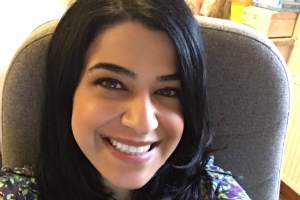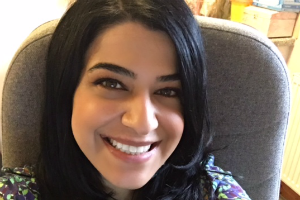How can GPs tackle the ‘crowdfunder’ quandary?


When I was growing up, home remedies were often used for minor illness. I remember being made to drink turmeric in hot milk for a sore throat (I wouldn’t recommend it) and cinnamon mint tea for nausea (which actually works a treat). However, when it came to major illnesses or long-term conditions, the doctor always knew best and we did exactly as the doctors prescribed.
Medical students are taught to ask about over the counter medications, herbs or non-prescribed medicines a patient might be taking. I didn’t really understood the importance of this, until I started practising medicine myself.
I’ll never forget some cases: supraventricular tachycardia after ingesting daffodil bulbs; osteoporosis from long-term use of ‘herbs’ which actually contained steroids; and gynaecomastia in a patient not understanding he was taking female hormones. And with the rise of the internet, the opportunity to self-prescribe has never been easier. At the click of a button, anybody can order Viagra for impotence or sharks’ cartilage for cancer.
As a GP, I am used to counselling gym fanatics about the risks of taking steroids and understanding that some of my MS patients take cannabis because nothing prescribed helps.
That seriously ill patients are crowdfunding, delaying treatment and opting for therapies that may not be evidence based is hugely concerning
What I haven’t been used to seeing is the numerous crowdfunding pages on the internet, for people with serious illnesses like cancer, raising money for alternative treatments. Indeed, a recent study highlighted how crowdfunding for alternative cancer treatments has soared in recent years.
Thankfully, I haven’t come across any of my patients doing this, though I have been curious to see why some people do it. When in the UK we are lucky enough to have free evidence-based cancer treatments on the NHS, why would people start looking elsewhere? During my enquiries, this is what I found.
There appears to be a misconception that the US is bigger and therefore better when it comes to treatments. Groups are raising money on crowdfunders so they can travel to the US for alternative cancer treatments. NHS cancer treatments are evidence based (or in trial phase, if there are no evidence based options). That seriously ill patients are crowdfunding, delaying treatment and opting for therapies that may not be evidence based is hugely concerning. Furthermore, the costs of these treatments are staggering.
There also seems to be a belief that while modern medicines are harmful to the body, alternative medicines do not carry side effects. My cancer patients worry about losing their hair and vomiting with chemotherapy or getting cell damage or neuropathic pain from radiotherapy. Some patients on these crowdfunders raise money to access alternative medicines which claim they do not pose these risks. To an old fashioned, evidence based doctor, this is absolutely mind boggling. Alternative medicines have often not been trialled, do not have any statistical basis behind their use and still have the potential for side effects.
Some of the crowdfunder pages are for experimental treatments, and I understand and empathise with people who may want to try anything that offers hope. The advice here must be to approach with caution, to ensure the treatments are safe and not a financial scam. As a doctor, if I am unable to cure a patient’s illness, I do not feel I can make any judgement in them looking for treatment elsewhere. I do discuss my concerns about the costs of this though, and provide them with options for best management for palliation and end of life.
However, accepting there is no cure is not for everybody. A young patient of mine recently died from oesophageal cancer. He was palliative at diagnosis and was struggling. While he didn’t crowdfund for any other treatments, he did tell me he was using cannabis oil, because he had read it had cancer curing properties. There is no statistical evidence to say that this is true, but I accepted his decision because although he knew he was palliative, he needed hope to get through his illness. The cannabis oil did him no harm, and our doctor-patient relationship stayed strong and stable, so that through his last days I was able to support him and make him comfortable.
If a patient comes to me asking for my opinion about a treatment I know nothing about, being a GP means I can go away and investigate further, and come back to discuss my findings with them. Talking about evidence and keeping the discussion open is always important in ensuring the patient’s questions and fears have been addressed. Building trust is often about listening to the patient’s needs, rather than only advising best medical practice.
Dr MayJay Ali is a GP partner in the West Midlands
Visit Pulse Reference for details on 140 symptoms, including easily searchable symptoms and categories, offering you a free platform to check symptoms and receive potential diagnoses during consultations.









